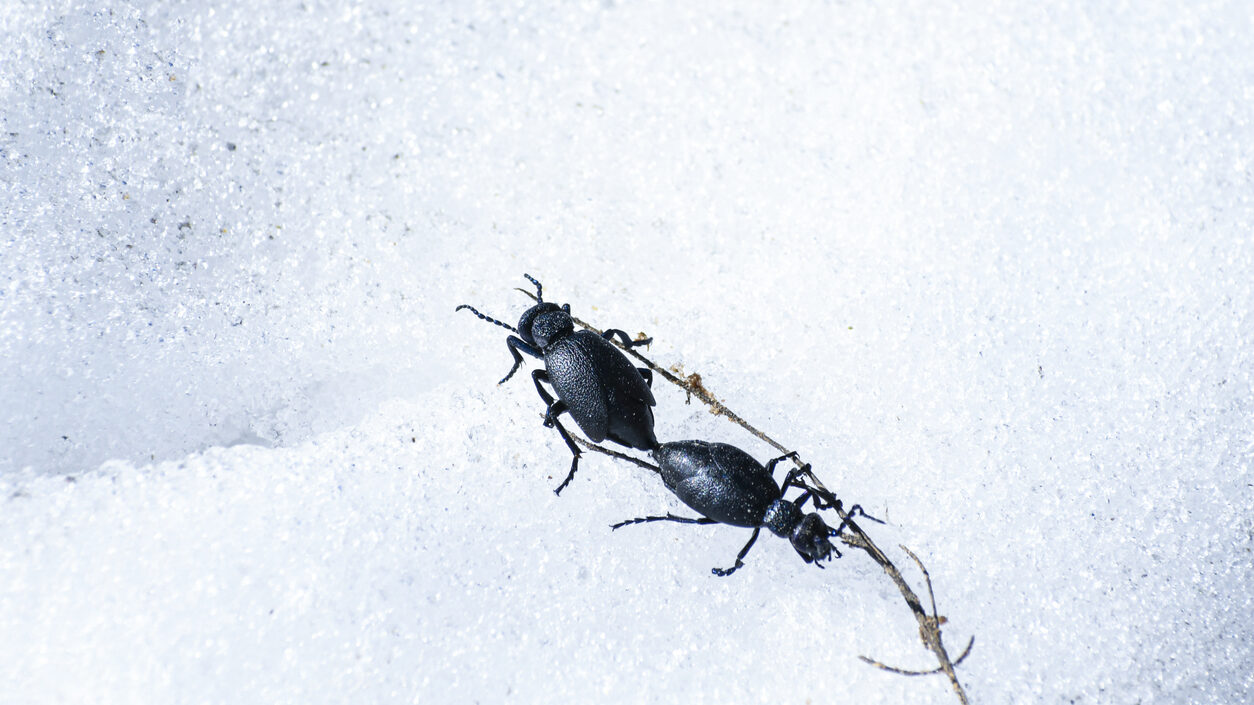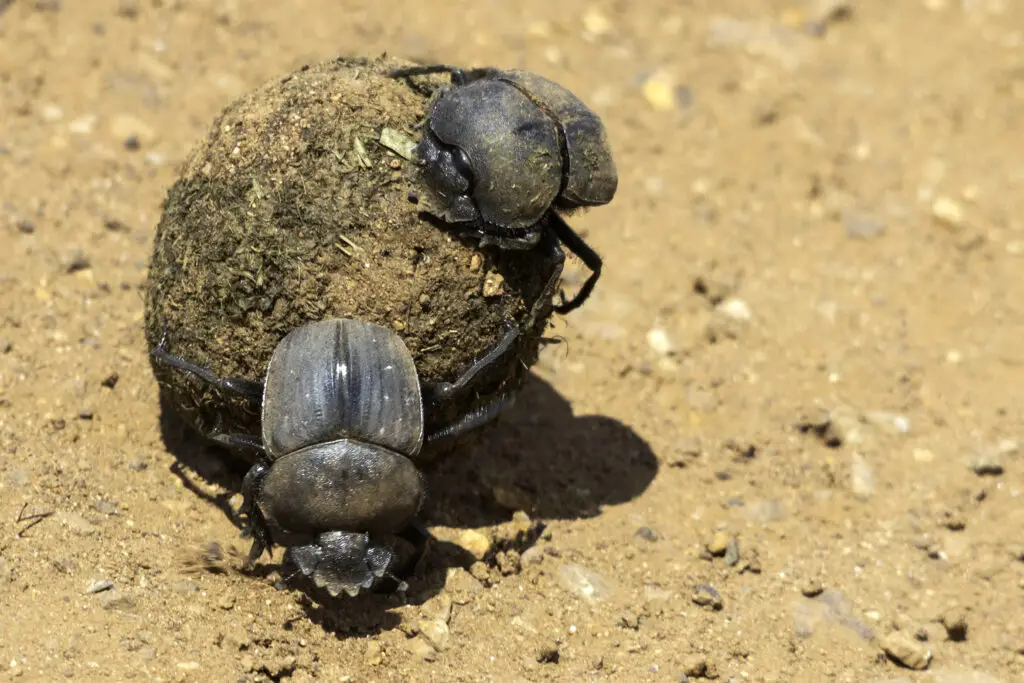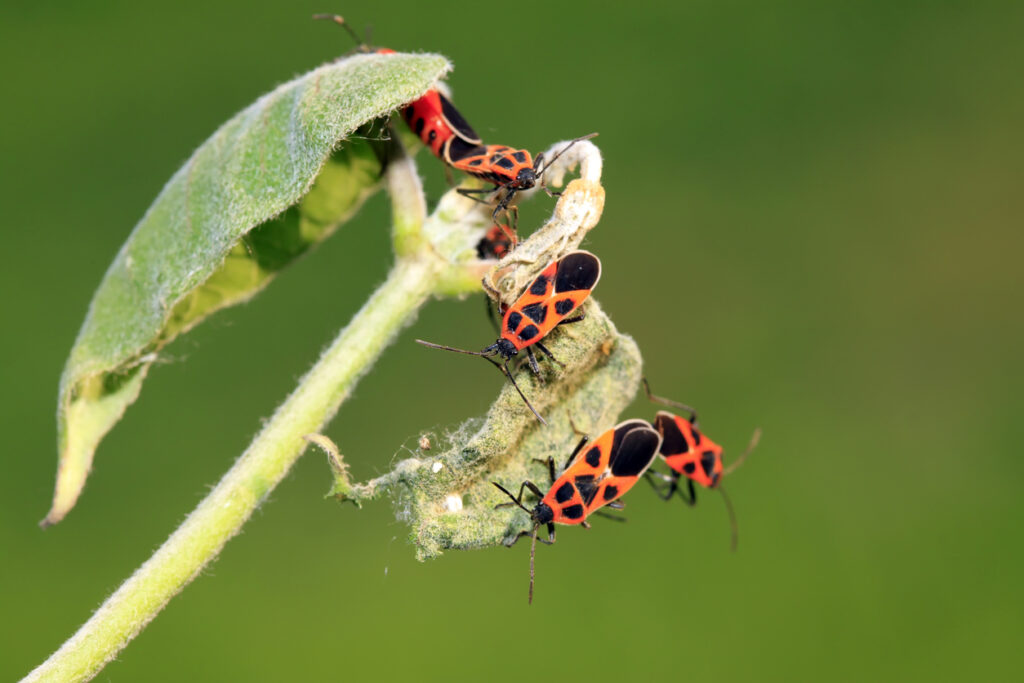1. Beetles Have Been Around Longer Than Your Favorite Dinosaur

If you think beetles are just tiny bugs scurrying under logs, think again. These six-legged survivalists have been crawling around for over 300 million years, meaning they witnessed dinosaurs rise, fall, and become museum exhibits. Imagine a world where T. rexes roamed the Earth, pterosaurs soared above, and beetles? Well, they were there too, doing what they do best—adapting, multiplying, and minding their own six-legged business. Unlike the dinosaurs, beetles managed to sidestep extinction events, including the asteroid impact that wiped out almost everything larger than a microwave. Their secret? Adaptability.
And when we say adaptability, we mean it. Some beetles can survive inside glaciers; others can stroll through lava fields like it’s a walk in the park. They’ve mastered every environment imaginable—jungles, deserts, underwater habitats, and even your own backyard. Their ability to thrive in extreme conditions has given them an evolutionary head start, allowing them to split into thousands of unique species that fit into different ecological niches. That’s right—while other creatures struggled to keep up, beetles were busy expanding their empire, one twig and leaf at a time.
2. They Have the Ultimate DIY Body Kit

Imagine if humans could swap out their arms for wings, reinforce their skin with armor, or develop glow-in-the-dark features just by tweaking a few genes. Beetles do this all the time. Their exoskeletons come in every imaginable shape, color, and texture, allowing them to blend in, show off, or even intimidate. From the dazzling jewel beetles that shine like molten gold to the ominous hercules beetle that could moonlight as a medieval warrior, their diversity in body design is a masterclass in evolutionary creativity.
And that’s just the surface. Some beetles have horns as long as their bodies, some can spray burning chemicals at enemies (looking at you, bombardier beetle), and others have evolved into perfect leaf mimics. This extensive customization makes them incredibly specialized for different environments, leading to more and more species emerging over time. In the grand scheme of survival, beetles don’t just play the game—they design the rules.
3. They Own the Largest Real Estate Portfolio on Earth

If beetles had a real estate agency, their slogan would be simple: “If it exists, we live there.” These insects have infiltrated every ecosystem imaginable. Whether it’s the cold Arctic tundra, the sweltering Sahara, or the darkest caves where even nightmares refuse to lurk, beetles are there, thriving. They’ve colonized forests, rivers, decaying logs, animal carcasses, and even other animals. Some beetles are parasitic hitchhikers, sneaking rides on mammals or burrowing into other insects. Others act as ecosystem engineers, helping break down decaying material and keeping nature’s recycling system in check.
This widespread colonization has led to something incredible—explosive speciation. Because beetles occupy such diverse environments, natural selection has driven them to adapt in unique ways, leading to the ridiculous number of species we see today. Essentially, the more places you live, the more opportunities you have to branch out and evolve. And beetles? Well, they’ve taken full advantage of that loophole.
4. Their Eating Habits Are Absolutely Ridiculous

If beetles had a dinner menu, it would include just about everything. Plants? Absolutely. Other insects? Of course. Blood? You bet. Fungi, decaying matter, dung, and even bones? Yes, yes, and yes. Beetles have some of the most diverse diets in the animal kingdom, which has played a massive role in their rapid evolution. Some beetles have evolved razor-sharp mandibles to tear through flesh, while others have developed chemical weapons to dissolve their food before even taking a bite. Then there are those that specialize in decomposing waste, turning nature’s garbage into fuel for the ecosystem.
This dietary flexibility means beetles can adapt to new food sources faster than most creatures, leading to the rapid formation of new species. Every time an environmental shift occurs, beetles don’t just survive—they find a way to capitalize on the change. Evolution rewards the creative, and beetles are the ultimate foodies of the insect world.
5. They Are Masters of Disguise, Deception, and Outright Trickery

If evolution were a talent show, beetles would take home every trophy. Some have evolved to look exactly like ants, allowing them to sneak into ant colonies undetected. Others can mimic the appearance of dangerous creatures, like wasps or toxic caterpillars, tricking predators into staying far, far away. And let’s not forget the firefly beetles—yes, they glow, but not all of them are sending love signals. Some are luring unsuspecting mates only to devour them upon arrival. Romantic, right?
This constant need to outsmart predators and competitors has driven beetles to evolve in mind-blowing ways, creating thousands of new species in the process. Nature rewards innovation, and beetles? They’ve turned survival into an art form. With every trick and deception they master, another species emerges, adding to their already staggering numbers.
6. Nature Just Keeps Handing Them Freebies

When you’ve been around for 300 million years, evolution starts stacking the deck in your favor. Beetles reproduce quickly, meaning they can experiment with new adaptations faster than many other creatures. Every time a beetle hatches with a new advantage—whether it’s a tougher shell, a different food preference, or a sneaky survival trick—that advantage spreads like wildfire. Before you know it, an entirely new beetle species has emerged, ready to stake its claim in the world.
And because beetles already live in so many places, their numbers just keep skyrocketing. They’re nature’s version of a franchise business—constantly expanding, diversifying, and dominating every possible niche. That’s why we have over 400,000 species and counting. Who knows? By the time you finish reading this, another one might have just been discovered.


